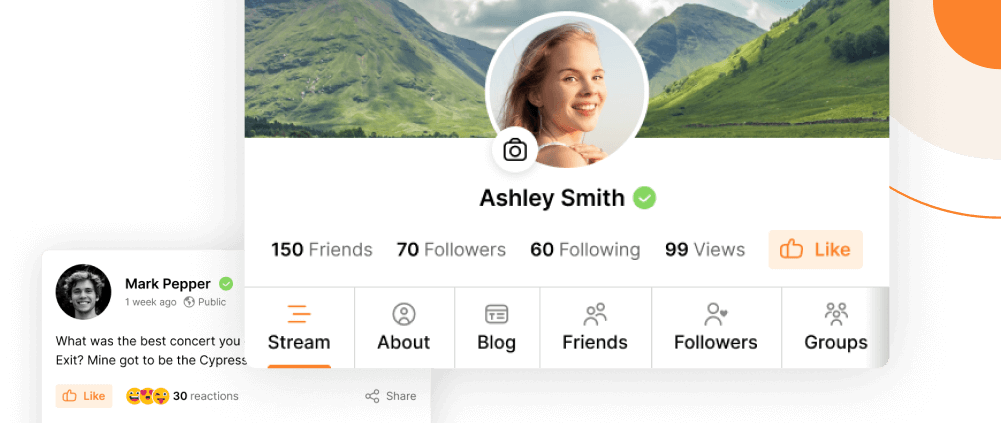On the surface, having a closed online community might seem the obvious route. You get to vet and filter new members and don’t have to deal with trolls and Karens slamming your content every day. However, there are serious risks associated with growth and sustainability of closed groups, so we encourage you to weigh up the pros and cons before making your decision.
What Makes Closed Communities Great
Higher chance of valuable engagement
Open groups can be inundated with comments, posts, and discussions—but are they relevant? Not all engagement is created equal, and a closed community is much more likely to keep discussions on topic and dive deep. Closed groups consistently produce much higher engagement and collaboration than open ones—as long as the community managers can keep the fire stoked.
Exclusive access to customer insights
This is an interesting one. If your business has a private community, then all the feedback, suggestions and insights from dedicated customers is feeding straight into your R&D machine—and your competitors don’t get to see it. This could give your business a significant competitive advantage.
Better opportunity for “real talk”
There are two sides to this. One is that for many topics (especially personal stories) we don’t want the whole world listening in. Behind closed doors, many of us can be ourselves and engage in truly valuable conversations in a way we can’t on a public forum.
In private communities you can also create dedicated spaces for people to actually converse and have focused discussions. Users feel better protected and comfortable sharing their data and opinions, knowing it’s safely hidden inside the community’s walls. In closed groups it’s easier for real bonds and even friendships to form.
Exclusivity attracts expertise
Especially for paid membership groups, it’s easier to bring in genuinely experienced, passionate members when they know they won’t have to deal with spam, trolls, and things being taken wildly out of context. Closed communities have an intrinsic allure which, if marketed very well, can attract more qualified members than most open groups.
Why Most Closed Communities Eventually Fail
Getting new members is hard
This might sound obvious, but balancing new registrations against churn can be very challenging within a closed community. There are clearly two sides to this:
- Managing growth—Private groups do permit new members, usually with specific screening and vetting in place. This might include a questionnaire, requirements such as qualifications or job titles, a personal circumstance, referral from an existing member—lots of options.
Because it’s harder to join, the community managers must put in lots of work to consistently bring in qualified members. The more niche your community, the more work this will take. Any drop in persistent effort or success means new members dry up fast. - Managing churn—People leave communities. It happens. But people also remain in groups and stop logging in, reading posts, or joining discussions. Again this is largely down to management: it is your job to ensure there are consistent core activities and shared experiences had by members. Once these fall off, churn shoots up and you ain’t getting them back.
You don’t need a stats degree to know what when more members leave than join, things are headed downhill.
Insufficient community management
If you’re going to limit participation, active community management is absolutely essential. You need your members to be as engaged and participatory as possible on a consistent basis. A lack of consistent group activity is what causes many closed groups to fail. The value becomes unclear, there’s nothing motivating them to join in, and gradually they’ll pay less and less attention.
Core recurring activities (like education, speakers, events, discussion, new content, brainstorming, video conferences….) allow members to share experiences, form stronger bonds, and derive real value from the community. And making all this happen is the community manager’s job!




Reactions & comments
Comments